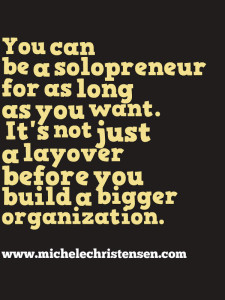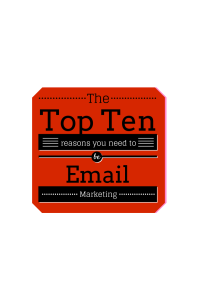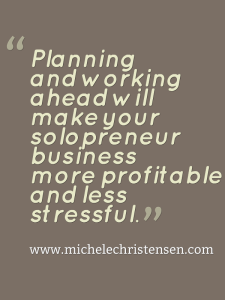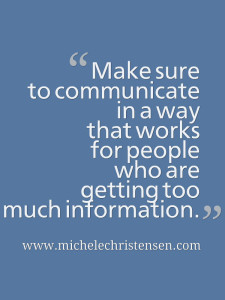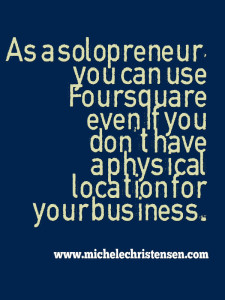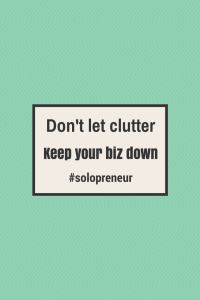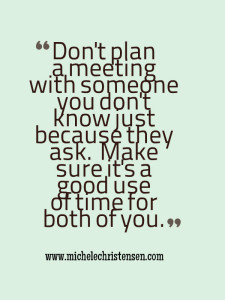 As I’ve increased the reach of my business, I’ve had an increasing number of people attempt to pitch me something in the guise of a Trojan Horse. It’s usually something like “Can I share your {whatever} with my audience?” or one particularly blatant one “I have a speaking gig for you, let’s talk (turned out to be a long sales pitch for something that was completely inappropriate for me.)
As I’ve increased the reach of my business, I’ve had an increasing number of people attempt to pitch me something in the guise of a Trojan Horse. It’s usually something like “Can I share your {whatever} with my audience?” or one particularly blatant one “I have a speaking gig for you, let’s talk (turned out to be a long sales pitch for something that was completely inappropriate for me.)
Just to be clear, it’s totally appropriate to pitch and sell when you are in business. Without selling, there would be no business. My objection to the Trojan Horse approach is that it is sneaky and often untargeted. In each case, I didn’t know I was going to be pitched to and the product or service being offered was not something I needed or wanted. The person pitching me occupied my time under false pretenses and I felt burned at the end.
What I want to share with you is to be on the lookout for these sales pitches. They will waste your time and if your experience is like mine, the people that do this don’t even try to target the right potential customers. Here are a few warning signs to look out for:
- Somebody comes to you with an offer that is too good to be true
- The person is overly flattering when it’s clear they haven’t gotten to know you or your work
- They request a phone, in-person or Skype meeting without explaining what the value to you will be or why it can’t be handled in a more efficient manner
- Vague references to “working together” without even one example of what that might look like
- You have a feeling of “What is this person talking about?” or “What the heck?” that isn’t shared by the other person
- They express urgency at needing to meet with you right away
One of the really vexing parts of the Trojan Horse sales pitch is that it is usually flattering! I admit, the first few times it happened I was thrilled that a stranger recognized my genius. I’ve now gotten pretty good at sniffing out legitimate admiration vs. insincere and generic compliments designed to woo me into a meeting. I’ve also come to recognize just how valuable my time is, so I place a higher bar on any meeting and very low value on ego-boosting.
Another problem with ducking these sales pitches is that if you get too broad with your criteria for declining, you may miss legitimate and valuable opportunities to collaborate and have a sales conversation about something that may actually be useful to you.
It goes without saying that you should not be using this to sell your own products or services. It makes a very bad impression and wastes both your time and your unqualified prospect’s time. The big question is how do you avoid the time-wasting Trojan Horses and accept the right appointments?
Here are a few ideas:
First, don’t jump to schedule an appointment just because someone asks. Check them out by visiting their website, social media sites and doing a Google search.
Second, make sure you understand why you are having a meeting rather than some other form of communication such as exchanging emails. Ask them some questions about why a meeting makes sense. Often, this drives away people who you probably don’t want to meet with and people who are a good fit appreciate your thoughtfulness.
Third, don’t schedule right away. I generally schedule everything a week ahead of time anyway, but a side benefit of this is that it wards off people who don’t have a legitimate purpose for talking to you. They don’t want to work that hard or plan ahead!
Fourth, pay attention to your feelings. If you feel pressured, unsure, weird, etc. it may be because the meeting isn’t right for you.
As a solopreneur, you have to guard your time or you won’t be able to do everything you need to do. Don’t plan a meeting simply because someone asks. Make sure you know the value of the meeting for both you and the person who wants to meet with you.
Like this post? Please use the Pin it and social share buttons to post it on your networks. Thanks!

 If you’ve been reading my blog up until now, you may notice a change in the comments section. I’m now using Facebook comments instead of the built-in comments feature in WordPress. While this may not be a major change for my site visitors, I did want to use this decision as a case study to show how I think solopreneurs should think through things.
If you’ve been reading my blog up until now, you may notice a change in the comments section. I’m now using Facebook comments instead of the built-in comments feature in WordPress. While this may not be a major change for my site visitors, I did want to use this decision as a case study to show how I think solopreneurs should think through things.